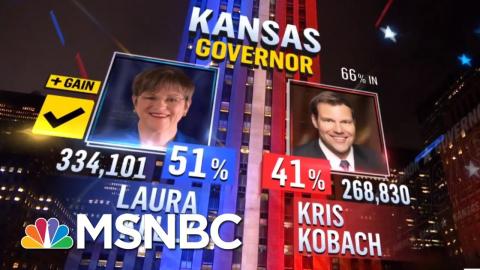Share
Blue Wave Recap: Important Victories for Voting Rights

The Blue Wave on November 6, 2018 included so much good news it was difficult to process it all. Over the next few weeks, Smart Dissent will attempt to recap the progress we made together including well-publicized topics and less covered ones.
To start this off, a brief look at the crucial Voting Rights victories last week.
Florida voters during Tuesday’s midterm elections approved Amendment 4, automatically restoring voting rights in the state for people previously convicted of felonies.
Florida’s Amendment 4 restores voting rights for people in the state convicted of felonies as long as they have completed their sentences, although anyone convicted of murder or felony sex offenses would be excluded.
Based on the Sentencing Project’s 2016 estimates, this benefits more than a million people. The organization estimated in 2016 that nearly 1.5 million people in Florida have completed felony sentences but can’t vote — about 9.2 percent of the voting-age population in Florida. The total, though, includes some people convicted of murder and felony sex offenses, so not every one of those people benefits under Amendment 4.
This is incredible news and was happily, widely covered by the national media.
Got a bit lost in the evening, but Amendment 4 passing in Florida, which restores voting rights to people with former felony convictions, is big deal that will have implications for 2020 and beyond.
— Nate Silver (@NateSilver538) November 7, 2018
Less talked about is great news in Michigan where voters approved a constitutional amendment intended to make it drastically easier to vote.
Voters in the state will now be automatically registered to vote when they interact with the state’s motor vehicle agency unless they opt out. They’ll also be able to register to vote on Election Day, as opposed to the state’s current registration cut-off of 30 days before an election. The amendment also allows people to vote for an entire party’s slate of candidate with a single notation ― a practice called straight-ticket voting, which the state banned two years ago.
Celebrated with enormous glee across the political twitter world, Kris Kobach was beaten in the race for Kansas governor. Kobach is perhaps the most notoious voter suppression thief and him being denied the office of governor will help so many people maintain their vote.
The nation’s most notorious vote thief has gone down in flames.
On Tuesday night, Kansas Republican Secretary of State Kris Kobach lost the governor’s race to Democrat Laura Kelly. Kobach built his career on voter suppression, whipping up nativist fervor by claiming that a large number of noncitizens are casting ballots. (They aren’t.) He led Donald Trump’s failed voter-fraud commission, then eked out a victory in the Republican gubernatorial primary against current GOP Gov. Jeff Colyer. But even in deep-red Kansas, voters appear to have rebelled against his brand of paranoid, xenophobic conservatism.
Sources:
https://www.huffingtonpost.com/entry/michigan-promote-the-vote_us_5bdcda50e4b09d43e31f00e9?cuj
